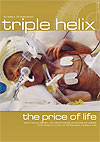Around the world, demand for healthcare is growing and it is increasingly recognised that we cannot simply increase the proportion of national wealth spent on services. Difficult decisions are thus inevitable, and the aim o fthis pamphlet is to show how Catholic social teaching can be brought to bear on the question of allocation.
Divided into three sections, the authors first explore healthcare allocation in the context of the United Kingdom. They then set out intellectual resources for addressing the problem, before applying these to the issue. Drawing from Catholic social teaching, the body of social principles and moral teaching articulated by the church since the late nineteenth century, the key principles of relevance include the dignity of human persons and subsidiarity or 'neighbourliness'.
Giving preference to the poor and reducing inequality receive mention, although much of the book's focus in this area is on care for the elderly, rather than tackling socioeconomic inequalities - a key aim for the NHS in recent years.
Healthcare allocation in many ways reflects our priorities as a society and is thus something the church should be engaging with. This pamphlet provides an alternative perspective for those wanting to think around the issue in more depth.
Divided into three sections, the authors first explore healthcare allocation in the context of the United Kingdom. They then set out intellectual resources for addressing the problem, before applying these to the issue. Drawing from Catholic social teaching, the body of social principles and moral teaching articulated by the church since the late nineteenth century, the key principles of relevance include the dignity of human persons and subsidiarity or 'neighbourliness'.
Giving preference to the poor and reducing inequality receive mention, although much of the book's focus in this area is on care for the elderly, rather than tackling socioeconomic inequalities - a key aim for the NHS in recent years.
Healthcare allocation in many ways reflects our priorities as a society and is thus something the church should be engaging with. This pamphlet provides an alternative perspective for those wanting to think around the issue in more depth.
































